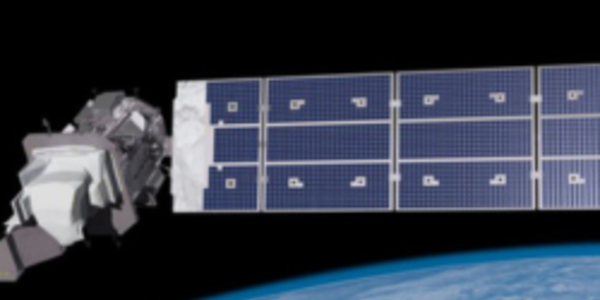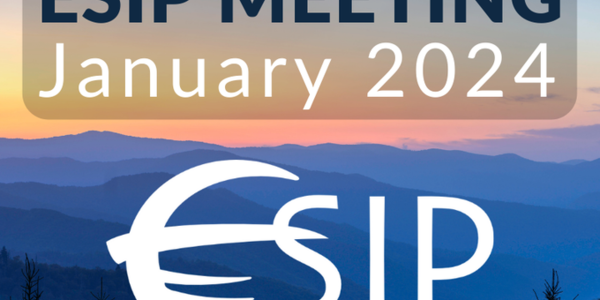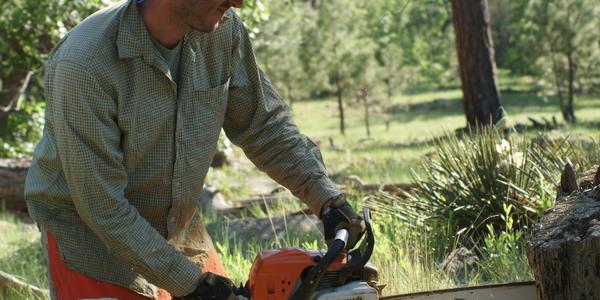NCEI supports early-career scientists through hands-on experience in science and technology

Each year NCEI hosts and mentors early-career scientists as they gain experience in science and technology. This summer, by teleworking, 17 interns are supporting the work of NCEI in a wide range of topics—from analyzing solar weather on the sun to analyzing the impacts of extreme weather here on Earth. Keep reading to learn about our interns and the important work they are doing.
Ernest F. Hollings Undergraduate Program
The Ernest F. Hollings Undergraduate Program is a scholarship and internship program that supports undergraduates in gaining practical experience in NOAA-related science, research, technology, policy, management, and education activities.
- Maya Fields, a student at the University of Maryland, College Park, double-majoring in Atmospheric and Oceanic Sciences and Astrophysics. Fields is working on a solar flare forecasting project to improve solar weather prediction accuracy.
- Mya Sears, a student at the University of Oklahoma majoring in Meteorology. Sears is working on a climate change vulnerability index for Puerto Rico and assessing the impacts from Hurricane Maria in 2017.
- Angela Tsao, a student at the University of Georgia double-majoring in Computer Science and Cognitive Science. Tsao is training a convolution neural network to extract patterns from water-column sonar data collected by NOAA Fisheries and archived at NCEI.
- Alison Walker, a student at the University of Miami double-majoring in Meteorology and Mathematics. Walker is looking at the Fujiwhara effect and the interactions between tropical cyclone systems using an analysis of IBTrACS data.
- Bryttani Wooten, a student at Penn State University majoring in Meteorology and Atmospheric Science. Wooten is assisting in the development of a web-based tool for predicting heat stress among high school student athletes by looking at forecast biases.
Cooperative Institute Internships
Internships are arranged through several of our cooperative partner institutions including the Cooperative Institute for Satellite Earth System Studies, the Cooperative Institute for Research in Environmental Sciences at the University of Colorado Boulder, and the Northern Gulf Institute. NCEI interns include:
- Marlee Burgess, an undergraduate student at the University of North Carolina, Asheville, majoring in Atmospheric Science and Forecasting with a minor in Mathematics. Burgess is looking at extreme precipitation trends in Western North Carolina and how they contribute to landslides in the region.
- Liam Carney, a student at the University of Colorado, Boulder, majoring in Computer Science. Carney is supporting multibeam data scripting and processing for bathymetric data.
- Andrew Coleman, an undergraduate student at the University of North Carolina, Asheville, majoring in Atmospheric Science. Coleman is evaluating multiple datasets to explore the intersection between drought and the economic impacts it has on agriculture across the United States.
- Drew Hamilton, a rising junior at the University of Maryland, College Park, majoring in Computer Science. Hamilton is applying a graph database architecture to increase the efficiency and function of Global Historical Climatology Network data.
- Sena McCroy, a recent graduate who completed her Master of Environmental Management at Duke University. McCroy is evaluating the results of a pilot study for home blood-pressure monitoring for prenatal women, exploring the social and environmental factors influencing rural adolescent mental health, and parsing out the relationship between the rising ambient temperatures and maternal morbidity in the Carolinas.
- Jessica Nation, a student at the University of Colorado, Boulder, majoring in Geology with a minor in Evolutionary Biology. Nation is supporting updates to the multibeam data ingest process for bathymetric data.
- Nicholas Schirato, an undergraduate student at Clemson University majoring in Environmental Engineering. Schirato is looking at how select climate change-related factors and sea level rise may impact the BMW plant in Spartanburg, South Carolina.
- Lisi Wang, a PhD student at Clemson University majoring in Computational Chemistry. Wang is developing prototype data management systems in the commercial cloud. Using machine learning and event-driven services, these tools can harvest, catalog, and monitor streams of data that flow into archive storage in the cloud.
- Matthew Watts, a master’s student at North Carolina State University majoring in Geospatial Analytics. Watts is standardizing remotely sensed soil moisture observations to improve global drought monitoring efforts.
José E. Serrano EPP/MSI Undergraduate Scholarship Program
The NOAA Educational Partnership Program with Minority Serving Institutions Undergraduate Scholarship provides funding and experience for undergraduate students at Minority Serving Institutions who are studying science, technology, engineering, and mathematics fields that directly support NOAA's mission.
- Alexandra Grayson, a student at Howard University majoring in Environmental Studies with a minor in Political Science. Grayson is supporting research into the impacts of COVID-19 and the economic impacts of environmental events.
Other Internship Programs
Many other programs allow early-career scientists across NOAA to gain hands-on experience in their field.
- Drew Manning, a student at Colorado College majoring in Physics with an emphasis in Astrophysics. Manning is participating in a National Science Foundation-funded Research Experience for Undergraduates by looking at solar dimmings and coronal mass ejections.
- Emma Pearson, an undergraduate student at the University of Colorado, Boulder, double-majoring in Business Administration and Evolutionary Biology. Pearson is detecting and analyzing calls produced by blue whales in the eastern Pacific Ocean using passive acoustic data from the NOAA National Park Service Ocean Noise Reference Station Network. These data are archived at NCEI.



